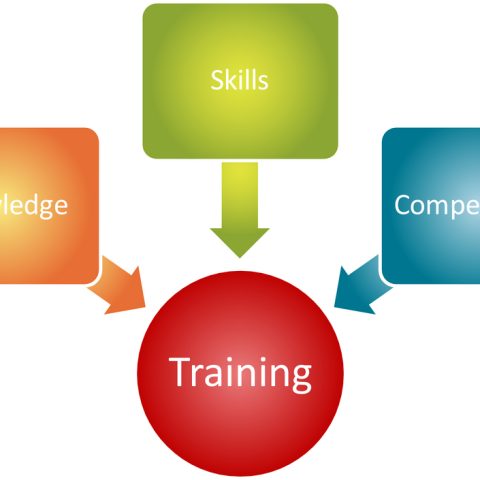 Do the people assigned to manage projects in your organization understand what they need to do to implement your mission critical projects? Are your project managers really accountable? Do they have the knowledge and skills necessary to coordinate the many constantly changing tasks that are necessary to deliver the goods?
Do the people assigned to manage projects in your organization understand what they need to do to implement your mission critical projects? Are your project managers really accountable? Do they have the knowledge and skills necessary to coordinate the many constantly changing tasks that are necessary to deliver the goods?
If you answered “No” to any of these questions, your staff may need project management training. This blog discusses four of the many challenging issues that nonprofit organization managers face in successfully deploying projects and how project management training can help to mitigate these issues.
In my experience, some major conditions that lead to unsuccessful projects are:
- A lack of understanding of the project manager’s responsibilities and accountabilities.
- Stakeholders who have different perspectives and opinions about the project’s goals, scope and priority.
- The project scope changes or expands without those changes being acknowledged and managed.
- Risks and issues are not effectively and formally managed.
These are common issues for many projects and can challenge even expert project managers. The more your staff knows about these issues and how to resolve them, the more likely it is that your projects will achieve their goals and provide the value you’re looking for.
Many smaller nonprofits may not want to invest to get staff certified as PMI Project Management Professionals (PMP), however the return on investment of educating them on some basic project management skills can be high. Tailored project management training that fits your organization’s needs can quickly pay for itself by empowering your team with the knowledge, tools and processes to help them make the right decisions which deliver mission critical projects on time and within budget.
If any of the scenarios below are familiar to you, it’s likely that your team could benefit from project management training.
1. A lack of understanding of the project manager’s responsibilities and accountabilities.
Your assigned project manager does not understand the role of project manager. They (and perhaps their supervisors) are not sure about what project managers do, their primary functions and tasks, and what are they accountable for.
Many nonprofits run lean and do not have dedicated project managers. Staffers asked to “step up” and assume the project manager role may not fully understand their responsibilities or may not have developed the requisite skills required for success. Training will help to clarify their accountabilities and provide them with practical skills such as preparing and managing to the project plan, and best practices such as engaging stakeholders.
2. Stakeholders who have different perspectives and opinions about the project’s goals, scope and priority.
Typically, stakeholders come to the table with their own agendas and ideas about what the project is, how it should be accomplished, and its importance to them. A big part of the project manager’s job is to keep stakeholders engaged and aligned by focusing on the project’s scope, goals, plan, risks, status, priority, etc. Project management training emphasizes that this requires proactively communicating the right information at the right time. By listening to and addressing stakeholder concerns, and helping them to understand “what’s in it for them,” project managers can build powerful, trust-based work relationships that lead to strong team cohesion.
Project managers should also prepare a stakeholder analysis to assess the roles and responsibilities that each stakeholder needs to play to make the project successful. This analysis allows the project manager to think through how well stakeholders understand and are currently fulfilling their roles and responsibilities, and how best to work with them to get them where they need to be. To ensure that the team is on the same page, the analysis should be shared with stakeholders, and revised based on their feedback.
3. The project scope changes or expands without those changes being acknowledged and managed.
Scope or mission creep is a common term used to describe situations where the project’s goals change from what was originally envisioned. Project management training will introduce templates that can be used to prepare both the charter and scope of the project. To ensure that the team is aligned, the project scope document should be agreed upon by all of the major stakeholders and is referenced throughout implementation to help manage any possible expansion of the scope.
Scope changes are a normal and expected part of project deployments. However, they must be acknowledged and a process must exist to manage them. All stakeholders must understand and agree on the impact to the project constraints (budget, schedule, requirements/outcome) due to changes in scope. Project management training will provide tactical advice and tools on how to prepare and present the impacts on the constraints. Project managers should be educated on how to present the pros and cons of different scenarios to various stakeholders to enable the best decisions about how to proceed.
4. Risks and issues are not effectively and formally managed.
Having an effective risk and issue management process helps to keep your projects on track. During this process potential problems are identified, quantified and evaluated; and equally important, solutions are planned. Inexperienced project managers can overlook the importance and value of adequately tracking and communicating project risks and issues. They sometimes assume that stakeholders intuitively know about problems, and don’t implement a formal process to share this information and bring people together to determine the best solutions. Not effectively managing risks and issues will derail tasks and create the domino effect of making other dependent tasks late, thereby delaying the project deployment.
Project management training provides the procedures and tools necessary to deploy a formal risk and issue management process that is effective, but not cumbersome or time consuming. Efficiently managing risks before they become issues goes a long way to keeping projects on schedule and on budget.
These are just four of the many valuable skills that your staff can gain from project management training. Learning about and using some fundamental project management best practices can add significant value to your organization by increasing the probability of success for your projects. Investing in this training will provide an immediate pay off for you and your staff, and help your organization to effectively achieve its goals.



